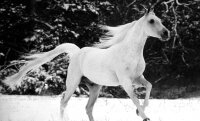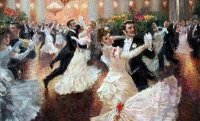CR: Karim Logue
Rick Barot was born in the Philippines and grew up in the San Francisco Bay Area. His first book, The Darker Fall, was published in 2002 by Sarabande Books as the winner of the 2001 Kathryn A. Morton Prize in poetry. Recipient of a fellowship from the National Endowment for the Arts, he has published poems in journals including Poetry, Ploughshares, New England Review, The New Republic, Virginia Quarterly Review and others. His second book, Want, was published by Sarabande Books in 2008. Rick currently teaches at Pacific Lutheran University in Tacoma, Washington.
§
Want includes many relatively longer poems. The book itself, having no chapter divisions, might also be thought of as a long poem. What was your process in putting the manuscript together?
The work that went into Want was book-ended by the writing of two long sequences. I wrote the first poem for the book, “Captivity Narrative,” in August 2001, and wrote what was basically the last poem, “Like A Fire That Consumes All Before It,” in April 2005. In the four or so years between the two sequences, I wrote everything else.
The book felt like it wrote itself. Before I wrote “Captivity Narrative,” I hadn’t written anything in a couple of years. But far from being anxious or melancholy about that silence, I welcomed it, knowing there was something working just underneath the surface of my awareness, and it would declare itself when it was ready.
After I wrote “Captivity Narrative,” the whole terrain of the book opened up in front of me. It was like I opened some kind of door, and there was already a party underway in the room. Ideas for poems just came rushing at me, and I spent the next three years writing them down, shaping them. I thought of the book as having love and desire as its umbrella themes, and everything I wrote agreeably fed into those themes.
After three years of writing, I still hadn’t given much thought to what shape the book would take as a book, even though I had a lot of poems for it. I assumed that I would have sections or chapters, but when I finally looked over everything, I couldn’t come up with any principle of division that made sense. It made more sense to make the poems flow one into the other, without the artificial sectioning. I like your idea of the book being a long poem. This reminds me of an old teacher who told our workshop: if you write a book with 30 poems, the book itself should be the 31st poem.
It’s been said the second book is much harder to write, since one has had all of one’s life prior to the first book to arrive at that first book. What were the differences between writing The Darker Fall and writing Want?
Given very distinct and familiar examples like Yeats and Rich, I always knew that a poet has to keep changing—or at least try. But it took Louise Glück’s idea that one’s next book should be a kind of critique of the previous book to make me see that my second book had to be that critique.
My whole apprenticeship as a younger poet can be tracked in The Darker Fall, almost ten years of work that stretched back to the first poems I wrote in college. On the other hand, Want took a relatively short time. At some point I realized that if the first book was concerned with seeing and describing, the second book was concerned with telling.
Ostensibly, Want was about love and desire, but it was also a dialogue or struggle I was having with myself regarding narrative. I have had a vexed relationship with narrative my whole life as a poet. I find narrative so dangerously sentimental most of the time—in my poems and in the poems of others—and I’ve sometimes defined myself as a poet who’s always trying to thwart my own narrative impulse for fear of being sentimental.
On the other hand, I also know that narrative—even if just the barest trace of it—is what most readers need to be in the poem. There’s a poem in my first book, “The Gecko,” that took over three years to write—precisely because it’s a simple narrative about someone getting a tattoo, and I kept resisting telling the story straight, every time I sat down to work on the poem. The poem’s not that good, but having to deal with its narrative imperatives taught me some things about what I care about in my own handling of narrative: I want legibility, but I don’t ever want to explain or point to any “moral” that might be in any given narrative; I don’t believe in the priority of any one narrative, because my head is often full of a pluralism of narratives that composes a quilt-like unity rather than a linear unity.
So many narrative poems always seem to end at a moment of pithy revelation or epiphany or wisdom— and one thing I know about myself as a poet is that I’m not a poet of wisdom. I don’t feel I have very much to say, though I have any number of things to see, describe, report, suggest. I went into writing the poems of Want with this understanding. I had a yearning to put down narratives, but I wanted them broken, placed in gritty juxtapositions. There’s a lot of disjunction in the poems in Want, which was my way of mapping my struggle with narrative. In the poems, I wanted to generate knowledge, but not wisdom, because I distrust wisdom more and more. Juxtaposing disparate narratives was my way of generating that knowledge while also keeping wisdom at bay.
Yeats and Rich are very apt examples. Did you find changes in yourself, as the poet?
When I was in my twenties, poetry—reading poems, thinking about poems, trying to write poems—was pretty much everything. My head felt like a bank-vault that only I could inhabit. During that time, I was a monster of selfishness to everything else. I would be with people I cared about, I would be doing things I enjoyed, I would be at my day-job getting things done, I would be aware of all the historical and political events of the world—but I would also not be there. Relationships and family and my job felt like the things you do when you’re watching TV, like folding laundry or knitting. Literature was the main thing, everything else was mere corollary.
I thought of my twenties as a time of apprenticeship, but I was incredibly serious about it. I didn’t know till later that that period was also a prison—that seriousness is a sort of prison. A necessary prison, I should probably say, because those four years—between graduating from college and starting grad school, when I was living in the Bay Area and worked as an office manager in an office in San Francisco— gave me a work ethic that I needed. Going to the Writers’ Workshop at Iowa, when I was 26, was a culmination of those early serious years. Going to the Workshop was like being in a nerd convention for writers for two years. Those two years validated the seriousness, but also showed me how ridiculous it could be. The students at Iowa—not to mention the faculty—could be such assholes to each other. And I knew that by extension I was that way, too.
ISBN: 1889330736
In my thirties, I’ve learned to balance the work of poetry with the work of making a life. I’m not less serious about poetry, but I’m now equally serious in having a life that’s concretely present, immersed in. I thought in my twenties that art was a special zone that was separate from the mundane, but I know now that my poems are a by-product of my life, they are transcriptions of the life I’ve lived.
One very big difference in the way I thought about my writing during my twenties and now in my thirties is this: in my twenties I thought of my poems as things that would be looked at by others, and so I was aware of making “well-wrought” poems; but in my thirties I’ve stopped worrying about the reader that might be out there, and I worry more that the poems are adequate, truthful transcriptions. Truthful to me, that is. My poems are not autobiographical per se, but they are about who I am nonetheless.
The poems of my own that I consider favorites are usually the unassuming poems that no one else would find remarkable—and they’re favorites because they remind me of particular situations or settings in my life that moved me. Poems as time capsules.
What are some of the sources for your writing?
As I said, in Want I was interested in creating juxtapositions, and so the sources I drew from were always consciously varied. I wanted different fields of imagery, different tonalities, different linguistic registers, and so on. I had all these different things to draw from because, probably like most writers, I go around with some part of my head that’s working as an open flypaper for things to stick to.
Anything I read, anything I see—bits of these catch on that paper. And then there are, of course, the emotions which are generated in any person on any given day. These stick to the paper, too. Some poems started out because I had an emotion that animated a set of images, making those images cohere into a poem. Other poems started as a single image that then called up a defining emotion, which in turn called up other images, images that didn’t make sense on their own, but gained meaning from their relations with other images.
Also by Barot, Litany
There’s that line from Bishop’s “Over 2,000 Illustrations and a Complete Concordance” that I think of as a sort of thumbnail poetics for myself: “Everything only connected by ‘and’ and ‘and’.”
What is one of your favorite poems?
“Litany” is one of my favorites in the book because I wrote it around the time I became aware that disjunction would be a strong feature of the poems in Want. With that understanding, I went into composing the poem wanting to have improvisational fun with a lot of random things that I’d been thinking about. I knew the sonnet and the anaphora would give me a finite space to work with, but within that space I could set up a set of pinballing vectors.
I also like the poem because— and this is related to your question about “sources”— it has a lot of “inside jokes” about things I was obsessed with some years ago. The reference to tea in the fourth line is connected to a tea- drinking period I had, when I got really interested in the water temperatures and steeping times of various kinds of teas. The reference to the daguerreotype in the seventh line is connected to the collection of daguerreotypes that I have. One summer a few years ago, I was on Ebay every day, bidding on daguerreotypes I couldn’t afford, and being upset for days when I didn’t win a particular thing. And the reference to the “sword-gray / fatherly rain” in the last line is about a period when all I watched were black-and-white Japanese movies with Shakespearean endings. In these movies, someone is always trudging away from a disaster with a tragic, drowning rain going on. You watch these movies, and you become a kind of connoisseur of rain.
Out of all the poems, “Cut Piece” stands out as being a departure from the others. How did this one come about?
The poem was inspired by a performance piece by Yoko Ono from the early 1960s, titled “Cut Piece.” In the piece, she sits on a stage and members of the audience come up one by one and cut away pieces of her clothing, until she’s left more or less naked. I’d been haunted by this piece for a long time.
When I wrote “Cut Piece,” it was the very last poem I completed for Want. In fact, I had considered the manuscript finished for nearly a year when I wrote the poem and added it to the manuscript. It belonged to the manuscript because the poem’s description of a man being methodically divested of his clothing and his hair and all the decorations on his body seemed to me a kind of closing ritual for the book’s themes of desire and loss.
As for the poem’s form, it’s not really much of a departure if you consider the Yoko Ono piece as its antecedent. I wanted the poem to be fragmentary, airy-looking on the page, in order to capture just a little of the feel of the Ono piece: the chaos of being stripped away, cut by cut, and the eventual wholeness of a revealed body.
What are you working on now?
On the front burner is a collection of essays about poetry, which I’d like to finish in the next few months. The manuscript is currently titled The Nightingale and the Grackles, and has essays about Wallace Stevens, Rilke, Adrienne Rich, Carl Phillips, Sylvia Plath, George Herbert, and others. This project has been nearly ten years in the making, and it’s a relief to think of an end approaching.
On the back burner is a third manuscript of poems. I want to say that the poems of the manuscript are about memory, but I’ve written so few poems that to claim the manuscript has an identifiable theme seems more wishful than actually descriptive of what’s there. I’m calling the manuscript Particle and Wave at the moment, to denote the varying properties that memory can have. The poems I’ve written so far seem incredibly, unabashedly narrative. Sometimes I think to myself that the poems are so narrative that they’re retrograde. Other times I just think that there’s an amazing amount of knowledge to be gained in going backwards.
–
Karen Rigby is a former editor for Emprise Review.







